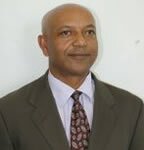April 28, 2011
John Donnelly
 As seen on April 23rd, 2011 edition of The Lancet.
As seen on April 23rd, 2011 edition of The Lancet.
When Haja Zainab Bangura, Sierra Leone's Health and Sanitation Minister, returned home from a trip to Ethiopia a month ago, she was exhausted and went right to bed. In the middle of the night, her phone rang. A friend was in labour at the Princess Christian Maternity Hospital in Freetown, and she was bleeding profusely.
Bangura made some calls and a Ministry consultant, who was a medical doctor, arrived at the hospital just as she did. They learned her friend had fallen off a hospital bed, bled to death, and lost her baby. Moments later, Bangura encountered another distressed woman in labour nearby, just outside the operating room. No doctor was on call. The Ministry consultant stepped in, delivered a stillborn baby, but saved the mother's life. In the span of roughly an hour, the Minister had witnessed three deaths.
Furious, she marched around the wards, checking staffing records. Bangura found that about 60—70% of the hospital staff had not come to work that night. The next morning, she called President Ernest Bai Koroma, and they ordered an investigation into the management of the hospital, which is the country's only referral hospital for complicated births. The hospital's senior managers have been put on paid leave until the investigation is over.
READ MORE »

 As seen at the Tony Blair Africa Governance Initiative.
As seen at the Tony Blair Africa Governance Initiative.  As seen on April 23rd, 2011 edition of The Lancet.
As seen on April 23rd, 2011 edition of The Lancet.  As seen on April 23rd, 2011 edition of The Lancet.
As seen on April 23rd, 2011 edition of The Lancet. 
 MLI is conducting interviews with development partners to get their views on country ownership and leadership in MLI countries. This entry is from Dr. Wondimagegnehu Alemu, WHO country representative in Sierra Leone.
MLI is conducting interviews with development partners to get their views on country ownership and leadership in MLI countries. This entry is from Dr. Wondimagegnehu Alemu, WHO country representative in Sierra Leone.